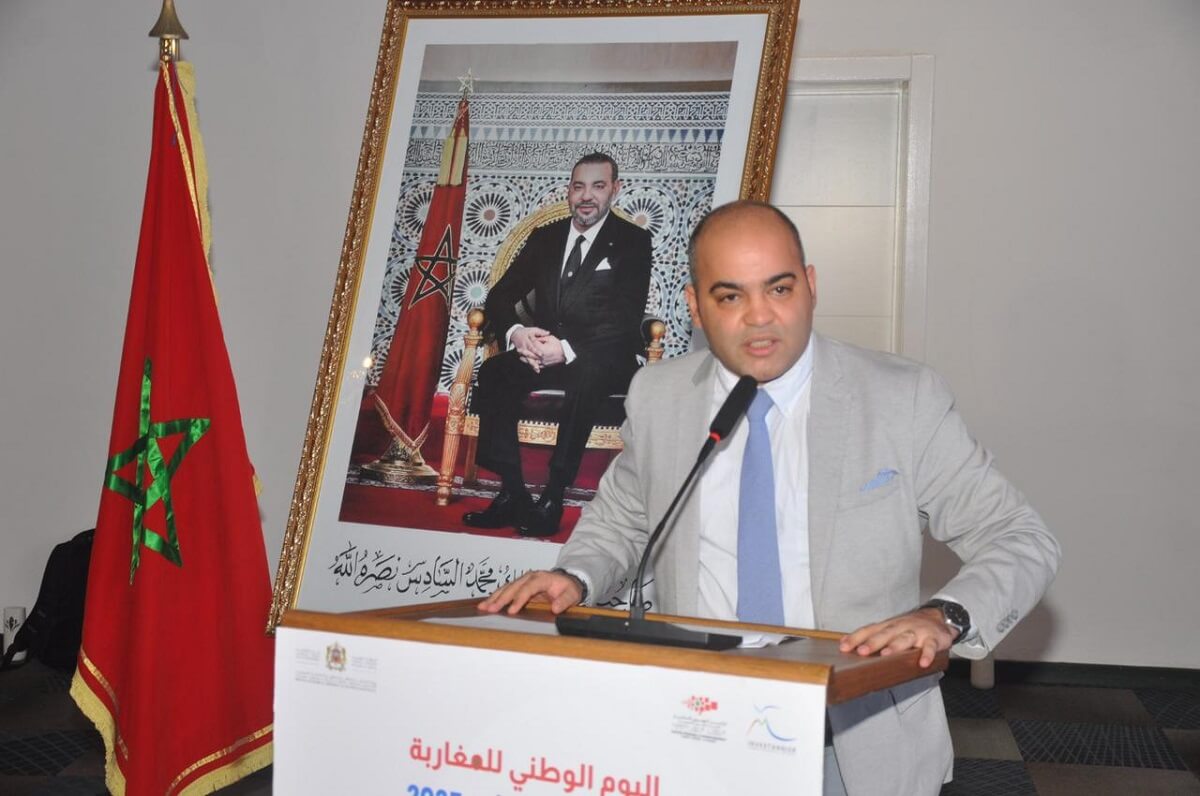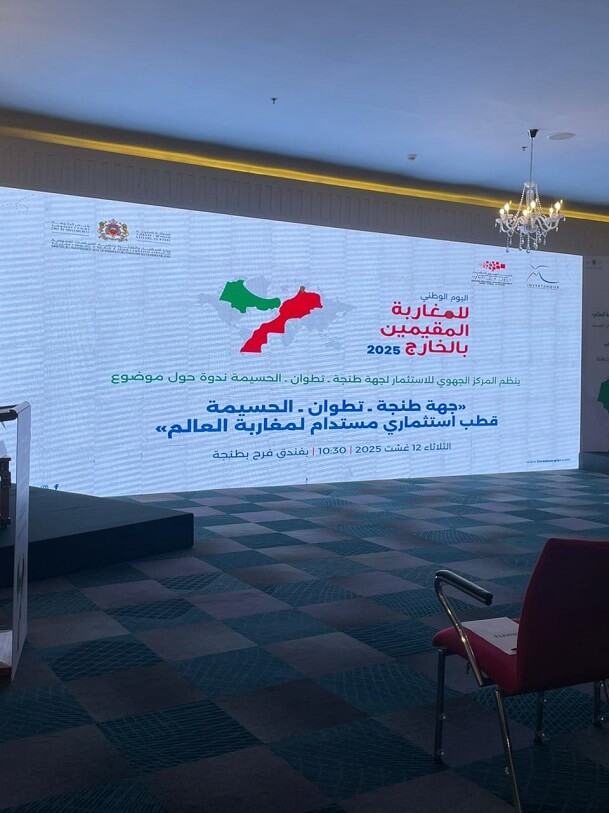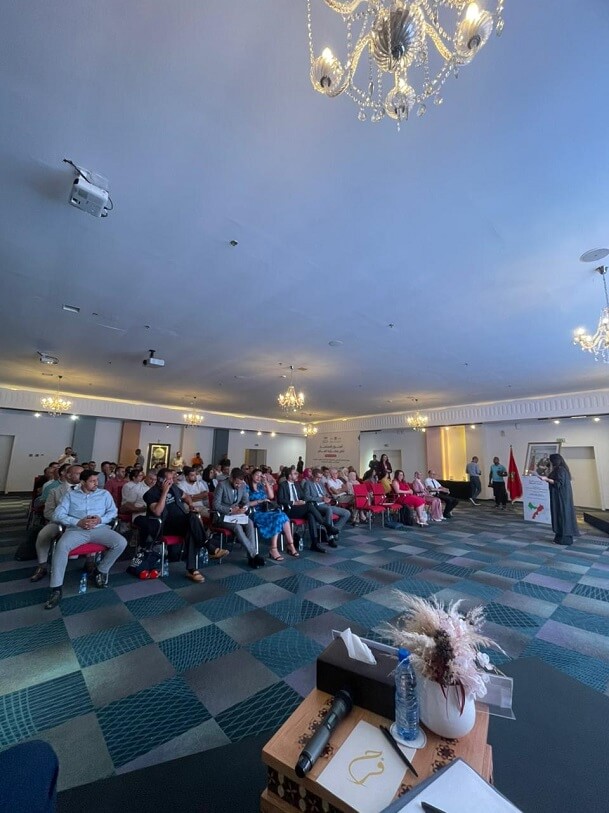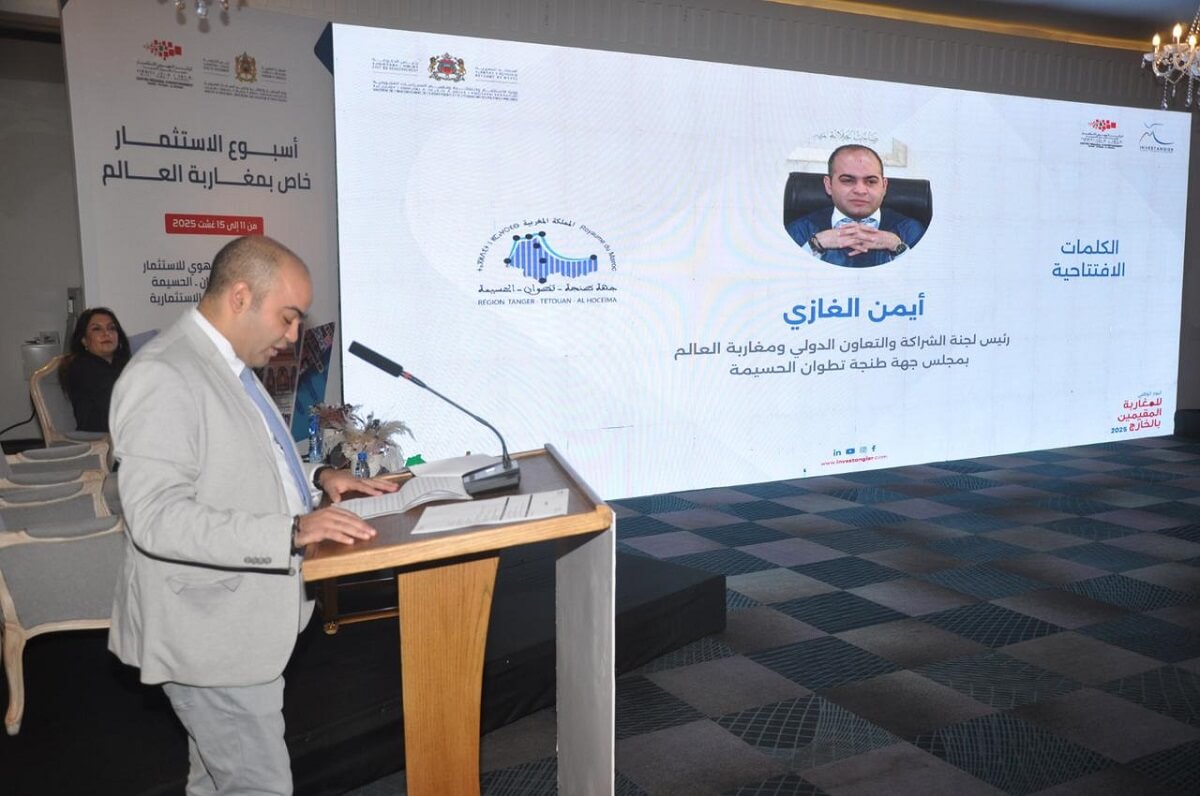Morocco attracts investment from Moroccans living abroad

The Regional Investment Centre (CRI) and the General Confederation of Moroccan Employers (CGEM) organised a seminar in Tangier to mark National Day for Moroccans Living Abroad, celebrated on 10 August.
The seminar, entitled ‘Digitalisation Workshop: Strengthening Services for Moroccans Abroad’, was attended by the president of the CGEM in the Tangier-Tetouan-Al Hoceima region, Omar Kadaoui, and other personalities such as Ayman El Ghazi, the highest authority on international cooperation at the Regional Council. The seminar served to highlight the magnificent contribution of Moroccans living abroad (MRE) as a great national asset for Morocco thanks to their significant contribution in all areas, both socially and economically.
In this context, Ayman El Ghazi explained how the Tangier-Tetouan-Al Hoceima region has mobilised 1 billion Moroccan dirhams (95 million euros) to make the Moroccan diaspora an important driver of development for the Moroccan kingdom by attracting investment from its own members, as well as from foreign investors in general. The aim is for Moroccans living abroad to make a significant contribution to investment in Morocco in order to continue promoting national economic and industrial development.

The Moroccan kingdom is thus continuing to develop a strategy of modernisation and national economic and industrial development, under the guidance of King Mohammed VI, with a view to further raising the North African country's profile on the international stage as a major economic and industrial power. Moroccans living abroad also have an important role to play in this strategy.
As part of this dynamic, the Tangier-Tetouan-Al Hoceima region has launched an initiative that aims to attract talent and capital from its diaspora abroad while positioning its infrastructure as a gateway to Africa for European investors as well, a strategy that was outlined by Ayman El Ghazi.

The NorDev fund plays an important role in this strategy. It is a regional fund inspired by Morocco's New Development Model for investment, following the Moroccan government's strategy, which seeks to improve the governance of investment management through decentralisation and administrative deconcentration, enabling Regional Investment Centres to play a key role as hubs for investment and job creation.
NorDev promotes active partnership and the mobilisation of stakeholders in regional development, with a budget of 1 billion dirhams (95 million euros) until 2027, with subsidies of up to 30% of the investment amount and other additional bonuses for regional or sectoral requirements in order to promote investment in Morocco, in this case in northern Morocco. The beneficiaries are large companies, SMEs, cooperatives and also the self-employed.
NORDEV's objectives include generating employment and promoting regional attractiveness, technological innovation, cohesion and social justice, creating a favourable environment for investment with a positive impact on job creation and sustainable development.

The NorDev Fund has already supported 72 projects, mainly led by Moroccans living abroad. ‘This is not rhetoric: we prioritise initiatives that generate employment and are sustainable,’ said El Ghazi in the presence of representatives of the CGEM.
The sectors included in the promotion of investment are:
- Technology: AI and digital transformation projects
- Circular economy: valorisation of agricultural and fishery products
- Health: development of equipment and health training
- Sports industry: from high-tech textiles to infrastructure
Moroccans living in Spain also play an important role due to the good political and economic relations between the two neighbouring kingdoms, which have been strengthened in recent years by Spanish support for Morocco's Autonomy Plan for Western Sahara.

Ayman El Ghazi himself referred to the nearly one million Moroccans living in Spain: ‘Your international experience is our strategic asset. We have created a unique digital platform that simplifies procedures and connects you with real opportunities here, in your homeland.’
These statements are in line with the main objective of the 12 CRIs in Morocco, which is to attract investment from both Moroccans living abroad and foreign investors in general. The Moroccan government offers various tools to attract more investment from abroad, as set out in the New Investment Charter, such as tax exemptions, the mobilisation of significant amounts of money to facilitate the establishment of businesses in the country, automation and facilitation of administrative procedures, and all kinds of advice and support when it comes to investing.









